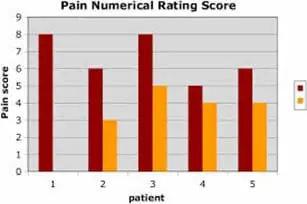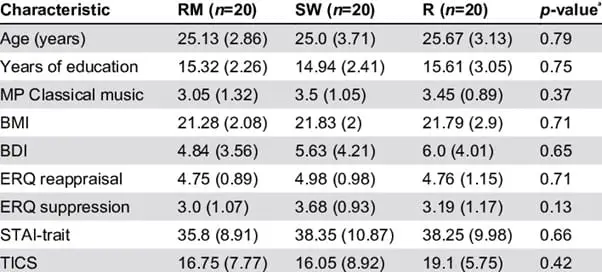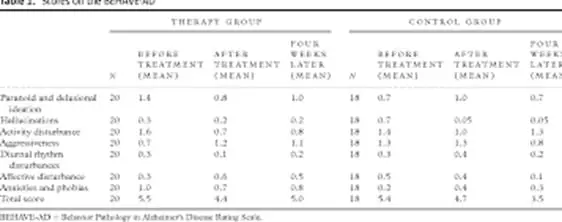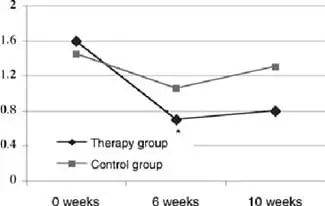Music is an integral part of our lives – this is as true today as it was several thousands of years ago. Every civilization has incorporated music into its culture. While humans created early music to entertain, we know now that music can benefit relationships, the body, and the mind. Over the last few decades, scientists and researchers have been trying to understand the positive effects music has on our health. The results of their studies and research are both fascinating and astounding. Here are some of music’s health benefits – backed by science and research.
Music can help with pain management.
People can manage both acute and chronic pain much better when music therapy is provided along with pain medication. That is the definite conclusion of a 2016 meta-analysis of more than 90 studies. But that is not all. Another study on the benefits of music therapy in pain management was conducted in an acute hospital in Singapore.
In this study, 44 patients who suffered from persistent pain were referred for music therapy. Each of the patients received personalized music therapy and were studied over a period of one year. The primary diagnoses of the patients included cancer, musculoskeletal conditions, and advanced organ failure. The patients suffered from persistent pain even while receiving regular medical treatment.
- Of the 44 patients, 37 showed significant improvement after just one music therapy session.
- Twenty-five of the patients verbally expressed their relief, while five of the patients completed a body-coloring tool that depicted pain relief.
- Nine patients had lower scores on the observational pain-behavior scale.

The study concluded that music therapy provided along with medication is much more effective in pain management than medication alone.
Music reduces stress
Several studies have concluded that music reduced stress. Of note is a study published in PLoS One. The study aimed to compare the effect of music on cortisol levels, anxiety, and mood.
Sixty healthy women, aged between 20 to 30 years were chosen for this study. They were randomly divided into three groups. The first group were made to listen to soothing classical music. The second group did not listen to any music. The control group were made to listen to listen to the sound of rippling water believed to be soothing and calming.
The participants’ heart rate, cortisol levels, and breathing were measured before and after the test. The results were as follows:
- Cortisol level response was highest in Group 1 (the group that listened to classical music).
- The lowest cortisol concentration level was noted in the Control Group (the group that listened to natural sounds).
- Cortisol levels returned to normal fastest in the control group – much faster than Group 2 (the group that did not listen to music).

n = valid cases, RM = listening to relaxing music, SW = listening to sound of rippling water, R = resting without acoustic stimulation, MP = Music preference, BMI = Body mass index, BDI = Beck Depression Inventory, ERQ = Emotion Regulation Questionnaire, STAI = State and Trait Anxiety Inventory, TICS = Trier Inventory for the Assessment of Chronic Stress
ªProbability value from one-way ANOVA.
The study proved that soothing music has the highest impact on stress and can prevent/reduce stress best. Not listening to music can bring down stress levels to normal faster than perhaps even lying beside a river, listening to the sound of rippling water. So, the next time you want to relax or destress, try listening to soothing classical music.
Music reduces anxiety in patients getting ready to undergo surgical treatment
Anticipating surgery can be a traumatic experience – traumatic enough to produce severe anxiety – this fact has been proved scientifically. One particular study aimed to find out if music could indeed help reduce anxiety experienced by patients who were about to go into surgery.
Thirty-three patients awaiting arthroscopic procedures were chosen for the study. The patients were randomly divided into two groups. The patients in the first group, or the experimental group, were made to listen to music for 20 minutes, while they waited in the operating room holding area. The second group, which was the control group, were not provided with any music. The patients’ breathing, pulse rate, and blood pressure were measured before and after the study. The results were as follows:
- The blood pressure remained unchanged in both the experimental group and the control group.
- Breathing and pulse rate reduced in the experimental group after listening to soothing sedative music for 20 minutes.
This proves that soothing music can reduce anxiety and bring about calmness in patients getting ready to undergo surgery.
3. Music alleviates anxiety in people who have suffered a stroke
The aim of the study: To determine if listening to music during rehabilitation could reduce anxiety experienced by patients who suffered a stroke.
For this study, fifty poststroke patients who were in acute rehabilitation were chosen. The patients were randomly divided into two groups. The first group, or the experimental group, were made to listen to an hour of music, while the control group did not listen to any music.
The participants were required to complete pre-test and post-test anxiety and depression screening. The findings were as follows:
- The experimental group reported significantly less anxiety (p<0.0001) after listening to an hour of music.
- There was no change in the control group’s pre-test and post-test anxiety scores.
The findings of this study suggest that music intervention could help lessen anxiety experienced by rehabilitation patients after a stroke. So, offering music therapy to stroke patients when they are in rehabilitation could lessen the anxiety these patients suffer from.
Music therapy can improve the mood and social interaction ability in patients who have a brain injury
The effects of music therapy techniques were studied in patients with acute brain injury/stroke were studied in 2000.
The study aimed to determine if music therapy could improve social interaction and mood in patients who had a brain injury.
The study comprised 18 patients with acute brain injury and stroke. The patients were assigned to either of two rehabilitation programs. The experimental group attended a rehabilitation program with music therapy. The patients received three music therapy treatments every week for a total of 10 treatments. The control group attended a regular rehabilitation program with no music therapy.
Measurements of mood (patient’s self-assessment and family rating) and family assessment of social interaction, as well as the therapist’s ratings, were all taken both pretreatment and post-treatment.
There was a marked improvement in the family members’ assessment of the patients’ social interaction with the group that received music therapy. The staff too noticed a marked improvement in the patients’ involvement and cooperation during therapy. Patients too rated themselves higher in the experimental group.
According to this and other studies, music therapy can significantly improve the mood and social interaction of patients suffering from brain damage or stroke.
Music therapy can reduce symptoms associated with Alzheimer’s disease
Studies have shown that music can help with memory recall. Some studies have even suggested that music therapy can reduce the severity of symptoms experienced by Alzheimer patients. Of note is research conducted at Ladspitali University Hospital, Iceland.
The aim of the study was to find out the effects of music therapy on patients suffering from Alzheimer’s disease.
Thirty-eight patients aged between 71 and 87 years and who suffered from moderate-to-severe Alzheimer’s disease were chosen for this study. The patients were randomly divided into two groups – an experimental group and a control group for a period of six weeks. After six weeks, the patients were tested on the BEHAVE-AD scale. The BEHAVE-AD scale measures things like hallucinations, anxiety, paranoia, and aggressiveness that are all symptoms associated with Alzheimer’s disease.
The experimental group received a total of 18 music therapy sessions. Each session lasted 30 minutes. The sessions were provided thrice a week over a six-week period.
The control group did not receive any change in care.
The patients were rated before the test, after six weeks, and finally again after ten weeks (after four weeks of not having received any musical therapy). The same qualified therapist conducted music therapy across the duration of the study.
The study analyzed the effect of one type of music therapy with the active participation of the patients, using both instruments and singing. Passive listening was not addressed in this study.
There was a marked reduction of Alzheimer-associated symptoms in the patients who belonged to the experimental group.

All the benefits noted in the patients in the experimental group disappeared after four weeks.

Another interesting finding was that there was increased interest in the staff who cared for treating the patients in the experimental group.
Music can help with memory recall as well as alleviate symptoms associated with Alzheimer’s disease. The study also showed that the effects of music therapy wane over time. So, music therapy must be provided on a regular basis to be really effective.
Conclusion: There is no doubt that music has several health benefits. From quick healing to managing pain and reducing stress, music can help when combined with other rehabilitation therapies and medications.


